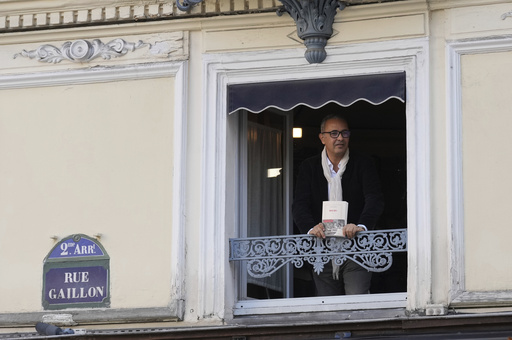
ALGIERS, Algeria — The opening of one of the largest book fairs in the Arab world on Wednesday in Algeria is marked by a notable absence. Kamel Daoud, a prominent French-Algerian author who just received France’s top literary accolade earlier this week, will not be present at this year’s fair.
The recent winner of the Prix Goncourt, along with his French publisher, Gallimard—typically a regular at the event—are conspicuously missing from the list of participants in the Algiers International Book Fair. This exclusion of well-known authors and publishers signals ongoing issues concerning restrictions on freedom of expression within Algeria.
Daoud’s works often evoke strong reactions in both Algeria, his birthplace, and France, where he is currently based. His award-winning third novel, “Houris” (translated to “Virgins” in English), reflects on the memories of those affected by Algeria’s harrowing “Black Decade.” The conflict was sparked when Islamists won the initial round of legislative elections in 1990, leading to a civil war after the military-backed government annulled the subsequent round.
Despite the profound historical context that surrounds “Houris,” it will not be among the vast selection of over 300,000 titles at the book fair, which is being promoted under the theme “Read to Triumph.” This year’s fair is particularly emphasizing historical narratives.
Ali Bey, who owns Algiers’ Librarie du Tiers Monde, expressed pleasure at Daoud’s international accolades while lamenting that Algerian audiences would be unable to access his works.
The restrictions are not limited to Daoud and Gallimard. Koukou Publishing, a progressive Algerian publishing house led by former political activist Arezki Ait Larbi, also faces exclusion from this year’s festival. The independent publisher is known for distributing literature that often questions or contradicts state-sanctioned narratives, and it wasn’t invited to participate this year, as Ait Larbi shared on social media.
“Our publishing house is facing the threat of a total ban,” Ait Larbi stated, alleging that censors from the Ministry of Culture are specifically targeting his publications.
